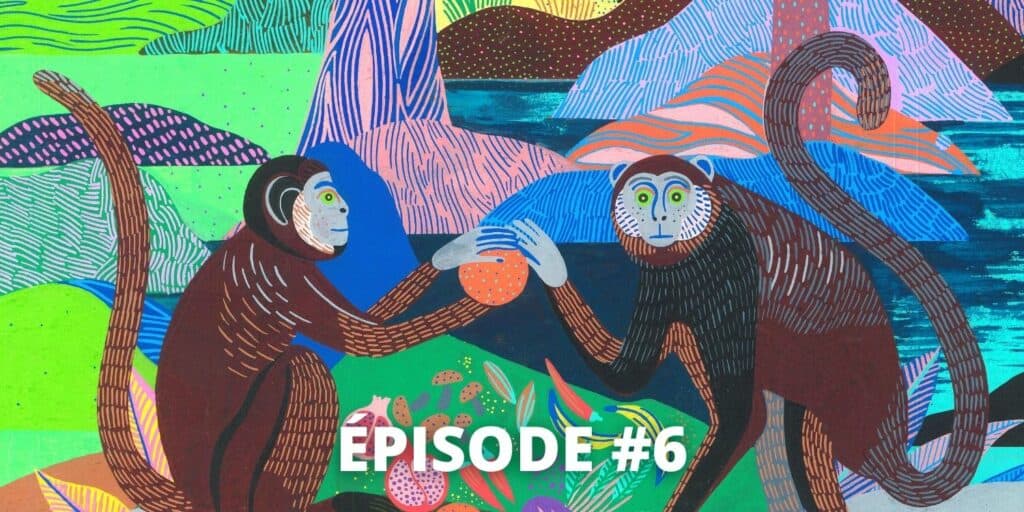Listen to the podcast
The benefits of sourdough bread
For our sixth episode, we will talk about living bread, fermentations, and sourdough. Sourdough is, for me, a wonderful word that opens up the imagination and makes both dough and hearts rise.
Do you have the soul of a baker too? It’s true that during the lockdown period, many of you rediscovered homemade bread and the joy of nurturing your sourdough like a small pet.
My sourdough is named Jean-Damien. It is almost 15 years old, was born in Franche-Comté, has traveled a lot, and had many offspring. Each week, it gives me one or two beautiful wholegrain and crispy breads, with inimitable aromas, full of character, a balance between acidity and roundness.
Sourdough is the oldest technique to get leavened bread, and the only one known until the 17th century. It allows for more digestible, living bread, that’s easier to preserve, tastier, and better from a nutritional standpoint.
The Guest: Valérie Zanon
Valérie is almost the perfect anagram of Sourdough. She is passionate about arts, homemade cooking, and fermentations.
A graduate of the Gobelins School of Image, she is also a graphic designer and Arts teacher.
She has been running a superb culinary blog since 2007 (https://www.lecoconutblog.com) and created a podcast titled Vilain Levain – which lightly and inclusively discusses the joys of fermentation in general.
Her book “Levain” is a true success, published by the highly recommended Alternatives publishers in 2020.
My Questions
- How did you become interested in fermentations and more specifically in sourdough?
- Describe sourdough from a sensory point of view? What does it smell like? What does it look like?
- You say it contributes to our genetic heritage. Why?
- Why “Vilain Levain”?
- How does sourdough work? What is it made of? What are the differences with yeast?
- How to get started easily?
- Which flours should be used?
- What are the “health” benefits and nutritional advantages of sourdough bread? (versus yeast bread). You say “it’s good for your intestines”: why?
- Do we find these nutritional benefits in sourdough breads that we buy? Where to buy it if we don’t make it ourselves?
- What time of day is it best to consume it?
- Do you have two or three “favorites” easy recipe ideas for our listeners using sourdough, to vary from bread?
Resources to go further
- Valérie’s book, Sourdough, Alternatives
- The Art of Digestive Health, Guilia Enders, Actes Sud
- The famous sourdough brownie recipe
- Valérie’s Instagram account
- Her blog, The Coconut Blog
- The podcast “Vilain Levain”
The (R)Evolutionary Food Podcasts are hosted by Louise Browaeys
An agronomy engineer (AgroParisTech) specializing in nutrition, Louise has been working for ten years in agriculture, food, and ecology sectors.
She is the author or co-author of several books on food, ecology, permaculture, and corporate social responsibility topics. Notably: “The Earth’s Share: Agriculture as Art” (Delachaux et Niestlé, 2014), “Daily Permaculture” (Terre Vivante, 2018), “The Planetary Diet” (La Plage, 2020).



